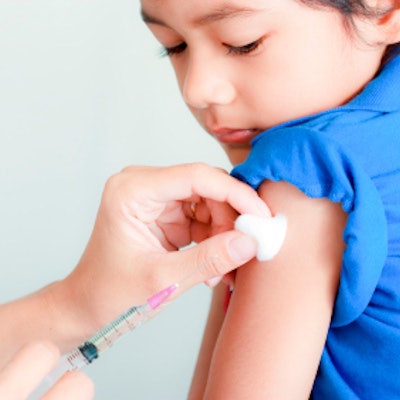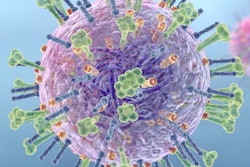
Support for a COVID-19 vaccine continues to wane even as companies report being closer to bringing one to the public. This may not be surprising, considering people in many U.S. states don't get inoculated for other diseases such as polio and the flu.
At 16%, Mississippi has the overall lowest vaccination rate in the U.S. Meanwhile, Massachusetts has the overall highest vaccination rate at 79% for diseases including polio, chickenpox, and HPV, according to "2020's States That Vaccinate the Most," a report released on September 14 by the personal finance website WalletHub. This ranking comes on the heels of Massachusetts becoming the first state in the U.S. to require all students to be vaccinated against the flu by December 31, 2020, to keep hospital beds available amid the pandemic.
"We need to continue to stress the successes, past, present, and future, that have resulted from the development and implementation of vaccines," Joseph Eisenberg, PhD, chair and professor of epidemiology and professor of global public health at the University of Michigan School of Public Health, said in WalletHub's report.
Wake-up call
These statistics may be more sobering reminders to state public health officials who will have an uphill battle in persuading their residents to get vaccinated for COVID-19. Misinformation, emergency approvals, and accelerated clinical trials have led to public mistrust. A study in August revealed that about 30% of people in the U.S. believe they probably won't get a COVID-19 vaccine or are unsure if they will. Despite an estimated 200,000 deaths from COVID-19, recent news reports show vaccine resistance is growing.
Dentists, as well as other healthcare workers, likely will have to do their part to make patients aware of the benefits of the COVID-19 vaccine, as with the HPV vaccine, which prevents oropharyngeal and other head and neck cancers caused by the virus, or any other vaccine. Without public buy-in, the efficacy of a vaccine won't matter.
"If a COVID-19 vaccine comes out too soon without rigorous safety testing, the public trust may be seriously damaged and further deteriorate routine immunization rates," said Wilbert van Panhuis, MD, PhD, an assistant professor in the epidemiology and biomedical informatics departments at the University of Pittsburgh and director of the Models of Infectious Disease Agent Study Coordination Center at the University of Pittsburgh.
The rankings
Massachusetts also had the highest flu vaccination rate for children and teens and was in the top five for HPV vaccination for teenagers, flu vaccination for adults, and meningitis vaccination for teenage boys, according to WalletHub, which analyzed data from all 50 states and the District of Columbia.
Mississippi landed in last place for HPV and meningitis vaccination for teenagers, and Wyoming had the lowest flu vaccination rate for children and teens. Vermont had the highest share of people 60 and older who had been vaccinated for shingles, and Mississippi had the lowest rate, according to the data.
No jab, no school
Massachusetts' move to require flu vaccines for all students, including those attending colleges and universities, may have some wondering whether mandatory vaccination rules are the answer to boost inoculation rates. Though many routine vaccinations are mandatory for children to attend school in the U.S., it is easy for parents in many states to be granted waivers, said Abram Wagner, PhD, a research assistant professor in the epidemiology department at the University of Michigan.
"Limiting philosophical and religious waivers can increase vaccination," he said.
Currently, only five states -- Mississippi, West Virginia, Maine, New York, and California -- limit waivers for vaccines to only medical issues, Wagner noted.
The pandemic has pushed some parents to homeschool their children. In that case, officials may need to think of other ways, like financial repercussions or incentives, to improve vaccination rates, Dr. van Panhuis said.
"Vaccination keeps infectious diseases away, as long as we keep doing it," he said.




















